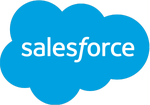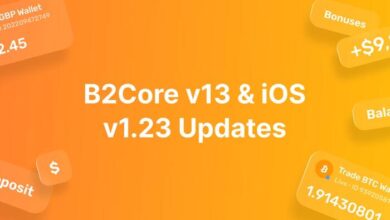HubSpot Vs. Salesforce (2024 Comparison) – Forbes Advisor

Editorial Note: We earn a commission from partner links on Forbes Advisor. Commissions do not affect our editors’ opinions or evaluations.

Getty
Salesforce and HubSpot are top-rated customer relationship management (CRM) software options, but which CRM is right for you? Before committing to a solution, it helps to explore where these CRMs excel and where they fall short. With this review, Forbes Advisor takes a look at Salesforce vs. HubSpot so that you can make a fully informed CRM platform decision.
Salesforce Vs. HubSpot At a Glance
Salesforce and HubSpot are widely considered two of the best marketing CRMs available today. Salesforce is a complex CRM that offers sophisticated tools unmatched by any competitor. The downside is that complexity comes with a high price tag and a long learning curve. HubSpot is more user-friendly and budget-friendly but that’s because it doesn’t have Salesforce’s extensive features.
How Salesforce and HubSpot Stack Up
HubSpot offers a free plan for basic CRM needs while Salesforce does not. You can get acquainted with the Salesforce platform using the 30-day free trial while HubSpot provides a 14-day free trial for its paid plans. Both platforms deliver essential CRM functionality, including sales forecasting, email marketing and contact and lead management.
Salesforce shines when it comes to customization, analytics and advanced features. HubSpot trumps Salesforce when it comes to user-friendliness and low-cost plans.
Bottom Line
Salesforce offers an extensive feature suite that makes it a top CRM. However, due to its complex infrastructure—and relatively high price tag—Salesforce isn’t for everyone. The platform is best suited to midsized to large businesses that need a powerful tool for managing sales leads and analyzing sales opportunities. Large sales teams will appreciate the collaboration and opportunity evaluation features that Salesforce offers.
HubSpot is a user-friendly CRM that offers a limited-feature free plan, making it affordable for even startups. Paid plans come with feature upgrades that can handle most customer relationship management needs. Still, HubSpot just doesn’t match up to Salesforce in terms of the overall features offered. HubSpot is an ideal CRM solution for small to midsized organizations.
Frequently Asked Questions (FAQs)
Is HubSpot or Salesforce better?
Both Salesforce and HubSpot are terrific CRMs but each has pros and cons. For example, Salesforce has an extensive set of complex features and deep sales forecasting and analysis tools, but Salesforce is a lot more challenging to use than HubSpot. While HubSpot is user-friendly, it lacks the depth of resources Salesforce delivers.
Is HubSpot cheaper than Salesforce?
HubSpot offers a free option and Salesforce does not, which gives HubSpot a definite price advantage for its basic plan. However, both CRMs offer advanced plans and add-on services that can get pricey. To determine which solution delivers the best price for your needs, make a list of the features you require and price out those options on each platform.
Is Salesforce a good CRM?
Salesforce is the best CRM for customization and integrations on the market today. Many businesses that need those two features will be hard-pressed to find a better solution.
Are Salesforce and HubSpot good CRMs for real estate?
You can use both Salesforce and HubSpot as a CRM for real estate. However, the best real estate CRMs are built specifically for the industry, such as Realvolve.
If your business involves managing sales and prospects, you need a CRM. A CRM will help you track sales prospects, develop a personal relationship with your customers and provide you with data-driven insights you’d miss without having a CRM in place.
Was this article helpful?
Thank You for your feedback!
Something went wrong. Please try again later.
More from

Forbes Advisor adheres to strict editorial integrity standards. To the best of our knowledge, all content is accurate as of the date posted, though offers contained herein may no longer be available. The opinions expressed are the author’s alone and have not been provided, approved, or otherwise endorsed by our partners.
Are you sure you want to rest your choices?
”
>








